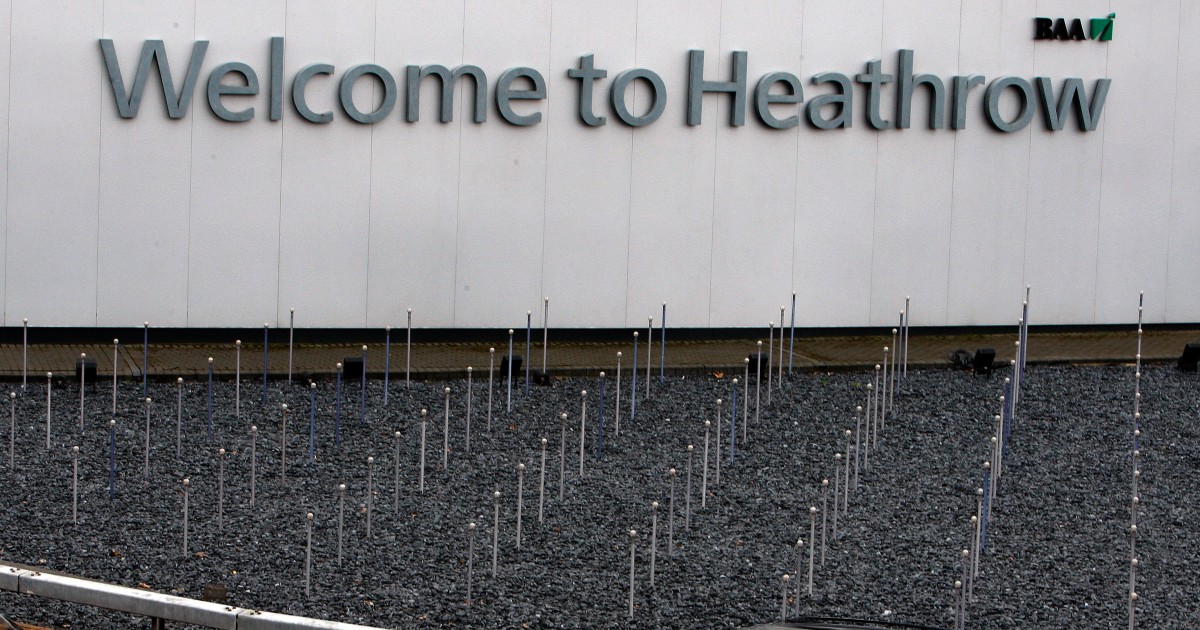BRUSSELS — A cyberattack on a provider of check-in and boarding systems disrupted operations on Saturday at several major European airports including London’s Heathrow, the continent’s busiest, causing flight delays and cancellations.
The disruption is the latest in a string of increasingly sophisticated cyber and ransomware attacks targeting governments and companies across the world, hitting sectors from healthcare and defence to retail and autos. A recent breach at luxury carmaker Jaguar Land Rover brought its production to a halt.
Collins Aerospace, which provides systems for several airlines at airports globally, is experiencing a technical issue that may cause delays for departing passengers, Heathrow said.
Brussels Airport and Berlin Airport were also affected, they said separately. Hours later, Dublin Airport said it was also facing minor impact from the issue, along with Cork Airport, Ireland’s second biggest after Dublin.
Collins Aerospace’s parent company, said it was aware of a “cyber-related disruption” to its MUSE software at selected airports, without naming them.
ELECTRONIC CHECK-IN IMPACTED
“The impact is limited to electronic customer check-in and baggage drop and can be mitigated with manual check-in operations,” RTX said in an emailed statement, adding that it was working to fix the issue as quickly as possible. It did not give any information on who might be behind the attack.
A spokesperson for the European Commission said there were currently no indications of a “widespread or severe attack” and that the origin of the incident was still under investigation.
At Heathrow, Berlin and Brussels, 29 departures and arrivals have been cancelled so far, aviation data provider Cirium said. In total, 651 departures were scheduled from Heathrow, 228 from Brussels and 226 from Berlin on Saturday.
These kinds of sweeping outages are typically the result either of ransomware attacks, where online extortionists paralyse corporate networks in the hope of payment, or deliberate sabotage.
Hisham Al Assam, who teaches computer science at the University of Buckingham, said the incident underscored how the use of common digital infrastructure can lead to “single points of failure”.
“Such models turn efficiency into fragility, where a single compromise can disrupt several airlines at once,” he said.
Several breach-tracking websites have previously said that Collins Aerospace was hit by ransom-seeking hackers in 2023. The company did not return a message seeking comment on those allegations or details about Saturday’s incident.
DELAYS AND CANCELLATIONS
Germany’s federal office for information security, the BSI, said it was in touch with Berlin Airport over “infrastructure disruptions” as a result of an outage affecting a global system for handling passengers.
Britain’s National Cyber Security Centre said it was working with Collins Aerospace and affected UK airports to fully understand the incident’s impact.Brussels Airport said on its website it was having to use manual check-in and boarding procedures, adding the incident occurred on Friday night.
“This has a large impact on the flight schedule and will unfortunately cause delays and cancellations,” it said.
The airport said that 10 flights had been cancelled so far, with an average delay of one hour for all departing flights.
PASSENGERS LEFT IN THE DARK
Passengers with a flight scheduled for Saturday were advised by the affected airports to confirm their travel with airlines before heading to the airport.
Tereza Pultarova, a journalist, spoke to BBC News from inside Heathrow, where she was due to fly to Amsterdam at 6:30 a.m. for a connecting flight to Cape Town.
“Unfortunately, the airline I’m with … they don’t have a service desk here, so we’ve been left in the dark,” she said. “It’s been great chaos, and it’s been quite … frustrating for most people here.”
Berlin Airport said on its website that there were longer waiting times at check-in and it was working on a quick solution. Frankfurt Airport, Germany’s largest, was not affected, a spokesperson said.
At Berlin Airport, Kim Reisen told Reuters there was a lack of clarity, with passengers only informed that there was “a technical fault”.
Another traveller, Siegfried Schwarz, said: “I … find it inexplicable that, with today’s technology, there’s no way to defend yourself against something like that.”
EasyJet, among Europe’s biggest airlines, said it was operating as normal and did not expect the issue to impact its flights for the rest of the day.
Ryanair and British Airways owner IAG did not immediately respond to requests for comment.U.S. carrier Delta Air Lines said it expected minimal impact, adding it had implemented a workaround to minimise disruption. United Airlines said the issue was “causing minor departure delays,” but it had not cancelled any flights.
British transport minister Heidi Alexander said she was receiving regular updates on the situation.













